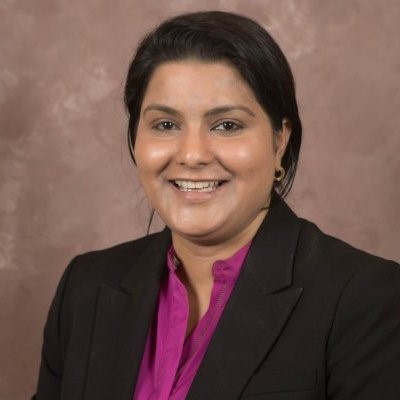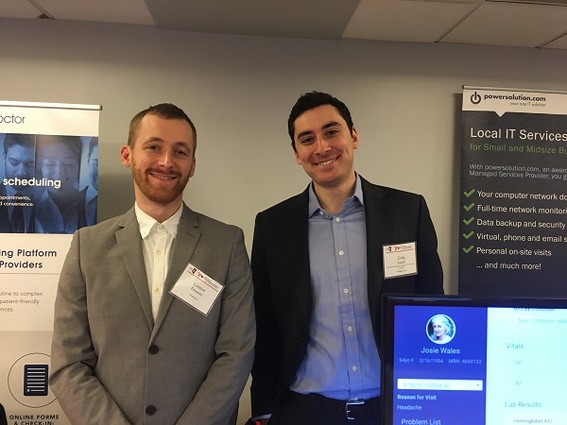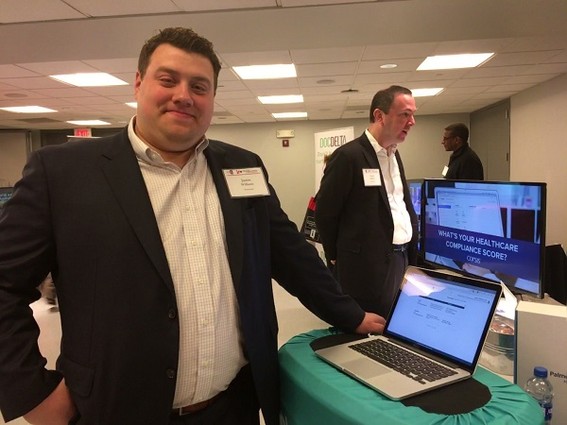Startup Roundup: NJ Health Tech Startups Alfrea, Globex Health, Wellsheet and Noteworth
From time to time, NJTechWeekly.com runs into startups at conferences and does quick interviews with them. Below are the startups we talked to at the Annual Innovation Showcase, held at NJIT in March.

Alfrea: According to Alfrea (Egg Harbor City) founder and CEO David Wagstaff, the company has pivoted since the last time we had spoken. Alfrea’s website used to specialize in matching folks who wanted to grow and eat fresh plant-based food to those who had a garden or a farm nearby, thereby connecting people with land, services and whole foods.
Now the company is “offering similar services, but with a focus on corporate health and wellness,” he said. “It turns out that 50 percent of healthcare costs can be assigned to food choices,” including the high costs of some very nasty diseases, like Type II diabetes, cardiovascular disease, stroke and 14 types of cancer.
“So we are now working with employers to help them keep their employees healthier. We offer a suite of wellness services based on fresh foods. These include delivering fruit baskets to offices to share as a healthy snack alternative, and fruits and vegetables from the farm to the workplace for employees to bring home to their families. We help employees participate in growing food, and we offer fun workshops and trainings, like backyard farming 101 and the smoothie operator.”
Alfrea’s first customers were hospital networks, but “now we are working with one of the largest food companies in the world and with other workplaces and community groups that care about community health.”
Under its old business model, Alfrea had grown rapidly, doubling subscribers every six to eight weeks. Wagstaff said, “A year ago, we had grown to about 700 subscribers. Now we are reaching over 13,000 people, primarily through company-paid programs. As it turns out, it was going to be slower to reach profitability, as consumers expect most apps to be free.” But employers, who pay an average of more than $12,000 per year/per employee for healthcare costs, are willing to pay to reduce those costs.
“One of our clients, Lourdes Health System [Camden], spends an estimated $50 million each year on their employees’ health care, and they are self-insured. Anything they can do to encourage behavioral change in food choices reduces employer healthcare expenses and improves productivity,” he said. “And they fully understand the connection between food and health. They also care about the community and patient outcomes, and it turns out that a lot of times patients don’t have good access to healthy food. So they have started a program where an employee will buy something for themselves and give one to a patient in need. That will encourage health in patients, as well.”

Globex Health: Juby George-Vazé spoke to us briefly about the use of data analytics at Globex Health (Newark) to help doctors and hospitals get fully paid.
“We started with a bundled-payment and Medicare offering, using data analytics, said George-Vazé, a nurse who is the CEO and chief innovation officer. “We have now increased our analytics capabilities, and can offer a lot more clinical and financial reports for doctors and hospitals who want to successfully navigate the new landscape of value-based payments,” which includes per member per month (PMPM) and shared savings (millions of dollars in bonus pools). Hospitals also get assistance in improving the quality of their services, which is a new factor influencing revenues under the transformation in healthcare that’s now going on.
“Additionally, we are broadening into blockchain and healthcare, focusing on the revenue cycle. This came out of queries from Asia, New York and New Jersey asking what we can do to help our reimbursement world, using credit cards, copays and deductibles.” As it happens, technology can help simplify all that. Having immersive experience in the health insurance industry gives Globex Health an advantage in making this possible, she said.
“Also, New Jersey has a new telemedicine rule that is not completely defined yet because we have a new healthcare commissioner. Once it is defined, we will use our proprietary platform to enable doctors and hospitals in New Jersey to use telehealth to keep their patients and expand into a new revenue stream, so they can manage their own patients in the community and at home better, rather than have outside companies come in and take over.” George-Vazé noted that Globex Health is working with the state to move this forward, and would welcome any providers who want to start taking advantage of this new innovation. They should “feel free to reach out to us through our website,” she said.

Wellsheet: Cofounder and CEO Craig Limoli was representing Wellsheet, a Newark Venture Partners company that, in addition to its headquarters in Newark, has offices in Manhattan and Palo Alto. The company specializes in predicting what clinicians will need to know regarding any specialty and any condition and provides all this information in each patient’s electronic health record.
Limoli told us, “There are a lot of new things happening with Wellsheet.” When we spoke in March, the company had “just gotten back from HIMSS18, the health information and technology conference in Las Vegas, and we were exhibiting there for the first time. We got a lot of attention from the health systems, and there were a lot of potential partners there. We had also just updated our branding, so we launched a new website,” he recalled. The company is currently focusing on its mission, “which is to help doctors practice more easily, get the information they need and reduce the frustrations they have with existing systems. Our new slogan is ‘doctor-friendly by design.’”

Noteworth: Both Justin Williams, founder and CEO, and Melyssa Brown, marketing manager, were at the Noteworth booth. The Hoboken-based startup has a connected health program that lets physicians incorporate patient-generated health data into a clinical setting, and it provides the patients with kits containing connected devices. When a physician orders medical equipment, including apps or medical devices, the startup puts together a custom box with the ordered devices, and makes sure the patient knows how to use them. The company also offers a mobile app that is already connected to the doctor and includes the doctor’s instructions for the patient, so the patient doesn’t have to set up anything. “For example, if I have diabetes, the doctor will want me to use a glucometer to measure my blood sugar.” The startup will send a preconfigured glucometer that will work via the app. “That information is going back to the doctor, even when you are not in the doctor’s office. We allow them to have a full narrative on what is happening between visits.”

